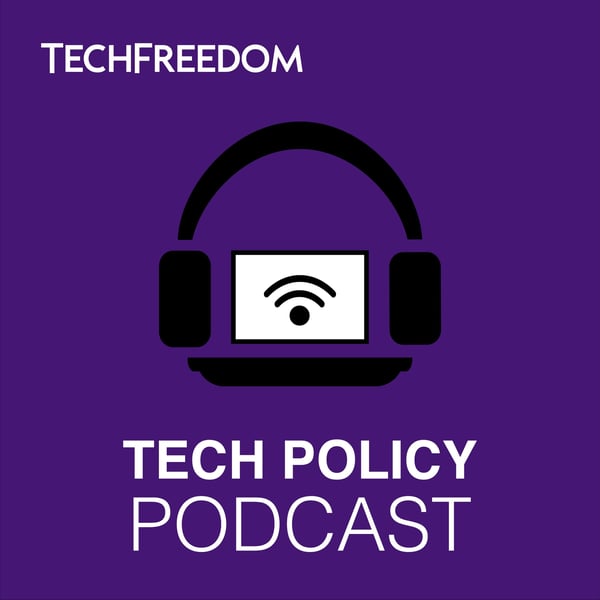#178: Is it time to break up Big Tech?
Tech Policy Podcast
TechFreedom
4.8 • 45 Ratings
🗓️ 5 June 2017
⏱️ 26 minutes
🧾️ Download transcript
Summary
Transcript
Click on a timestamp to play from that location
| 0:00.0 | Welcome to the Tech Policy Podcast. I'm Evan Schwarger. On today's show is Silicon Valley |
| 0:09.1 | Too Powerful? Our websites like Google and Facebook becoming monopolies. Do we need to break them up |
| 0:15.5 | or regulate them as utilities? Or what should we do about this, if anything? Should we be |
| 0:19.7 | afraid? Is this just much ado about nothing? |
| 0:22.9 | Well, joining me to discuss this is Mike Mandel, Chief Economic Strategist for the Progressive Policy Institute |
| 0:28.0 | and co-author of a recent report with Brett Swanson, The Coming Productivity Boom. Mike, thanks for joining. |
| 0:34.3 | Oh, very glad to be here, Evan. |
| 0:35.9 | So there was a New York Times op-ed which made a lot of noise called Is It Time to Break Up Google? |
| 0:42.1 | And essentially, they looked at the market share of various American tech companies. |
| 0:46.4 | They said, Google has 88% market share in search advertising. |
| 0:50.1 | And Facebook, if you include its subsidiaries like Instagram, WhatsApp, and Messenger, they own 77% of all mobile social traffic. |
| 0:58.7 | And then you've got Amazon with a 74% share in the e-book market. |
| 1:02.5 | And the author, who is the director emeritus of the University of Southern California's Annenberg Innovation Lab, he says in classic economic terms, all three of these companies are monopolies. |
| 1:13.7 | Is he right? |
| 1:14.9 | I think he's grabbing the stick at the wrong end. |
| 1:18.5 | I've actually got a basic economics textbook that's in this third edition. |
| 1:24.4 | And, you know, what economics tells us is that the problem with companies with market power |
| 1:30.4 | is that they raise prices, they reduce supply, and they lower the welfare of people that way. |
| 1:39.6 | Now, actually, what Brett Swanson and I did in our report is we divided the economy into a digital |
| 1:44.6 | sector and a physical sector. So you've got the digital industries and the physical industries. |
| 1:49.3 | And what's fascinating is that the digital industries have much faster productivity growth |
| 1:55.2 | and much slower price growth and also much faster job growth. The physical industries have slower productivity |
... |
Please login to see the full transcript.
Disclaimer: The podcast and artwork embedded on this page are from TechFreedom, and are the property of its owner and not affiliated with or endorsed by Tapesearch.
Generated transcripts are the property of TechFreedom and are distributed freely under the Fair Use doctrine. Transcripts generated by Tapesearch are not guaranteed to be accurate.
Copyright © Tapesearch 2025.

